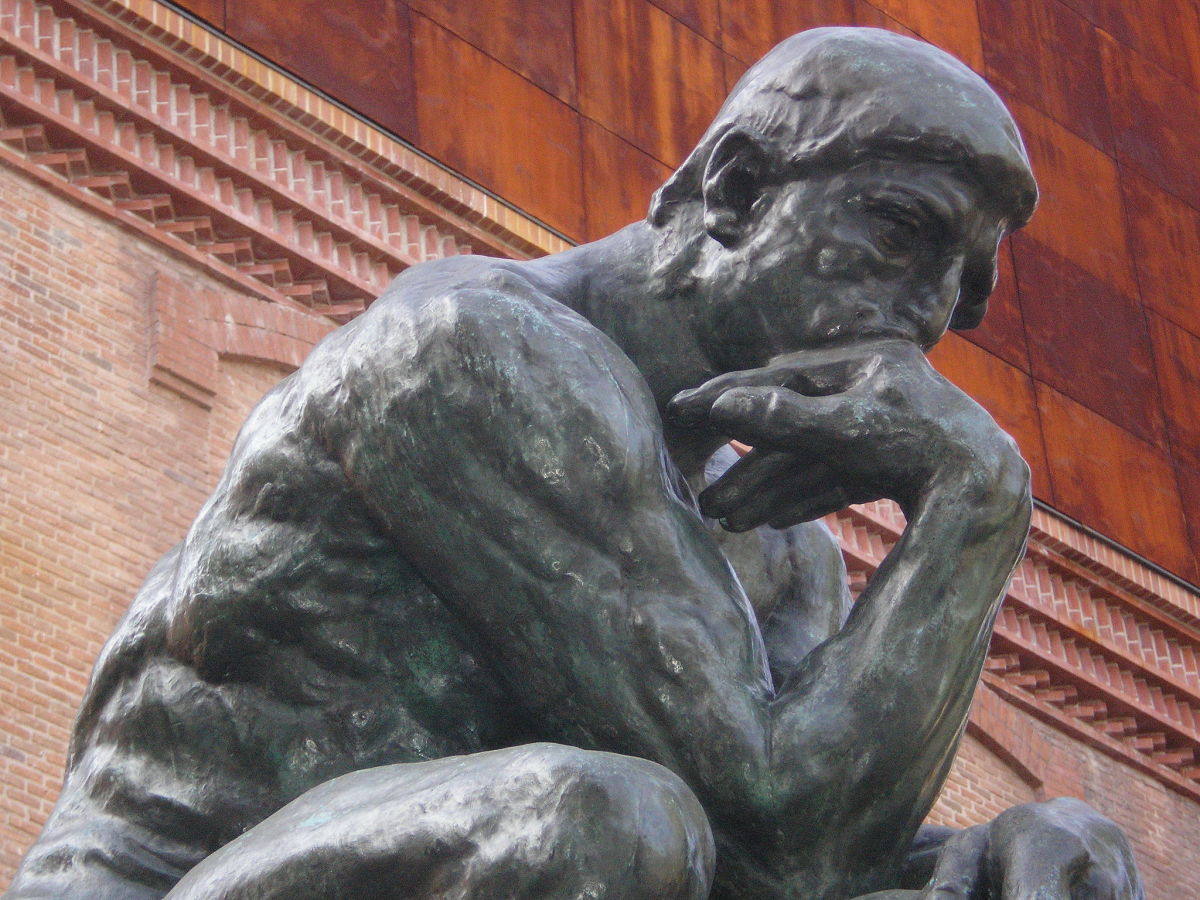Quotations for Motivation #59 --- Self-Discipline
Quotations on Self-Discipline (Set No. 2)
The number one cause of individual failures is inability to get along harmoniously with people. In most instances this results from failure to discipline one's self.
Andrew Carnegie once said, "The man who cannot or will not exercise discipline over himself must submit to discipline by others." And again he said, "I have always made it a part of my business philosophy to caution my associates against the dangers of indiscreet use of authority and personal power, especially those who, through promotions, have but recently come into the possession of authority. "
Newly acquired power is something like newly acquired riches; it needs watching closely lest a man become the victim of his own power by its misuse. Here is where self-discipline gives a good account of itself. If a man has his own thoughts and actions under control, he makes these serve others in a manner which does not antagonize, but rather attracts friendly cooperation."
Thomas A. Edison tried out more than 10,000 different ideas before he perfected the incandescent electric lamp. But he had the self-discipline to sustain him through all those defeats to victory. His self-discipline ushered in the great electrical age which transformed the entire mechanical and industrial world and made jobs for countless millions.
Self-discipline is the only sure means of developing and maintaining a positive mental attitude. It is the medium by which one learns from his mistakes and discovers the seed of an equivalent benefit in all of his failures and defeats.
You have in your mind-power everything you need to take you from where you are to where you desire to be in life. But that power consists of both a positive and a negative potentiality, and self-discipline, alone, can help you direct it to successful ends.
Self-discipline is an essential for the maintenance of sound health. And it is the means by which one concentrates his mind on that which he wants from life and keeps it from attracting that which he does not want, through fear and worry.
Through self-discipline of almost unbelievable endurance Mahatma Gandhi freed India from the rule of the British without violence, without military organization and without money--a feat seldom achieved in the history of mankind.
Because he lacked self-discipline, Hitler destroyed his country, caused the useless death of untold numbers of men, and lost his own life. ...
Self-discipline makes it possible to turn on more will power and keep on instead of quitting when the going is hard and failure seems to be just around the corner.
There are two times in a man's life when he needs highly refined habits of self-discipline to save him from ruin. One is when he is overtaken by failure or defeat, and the other is when he begins to rise to the higher levels of success.
Lastly, self-discipline teaches a man that silence often is more appropriate and gives one more advantages then spoken words inspired by anger, hatred, jealousy, greed, intolerance or fear. And it is the means by which one develops and maintains that priceless habit of thinking about the possible effects of his words before he speaks.
—Napoleon Hill, Houston Post, Houston, Texas, May 4, 1956.
Many people confuse the word "discipline" with "restraint." But its actual meaning is much wider in scope. Restraint applies only as it is necessary to channel one's activities of thoughts in practicing discipline.
If you look at the word carefully, you will see that it comes from the same Latin root as the word "disciple"–one who is a student of some particular school of thought or skill.
Thus, when we practice self-discipline, we are training and educating ourselves in a given field or specialized body of knowledge.
It is possible to achieve success without self-discipline. But I can tell you that it will be much easier to realize your dreams of individual achievement if you learn this art.
Self-discipline is the medium by which you can take possession of your own mind and condition it to break undesirable habits and thought patterns--and to cultivate new ones.
It inspires one to constructive action and at the same time restrains one from destructive, negative action. Through it, you can change your mental attitude to suit every need of life.
Man is blessed with the power of choice. He can decide where he wants to go in life and what course of action he hopes will take him there. These choices are as much at his command as his choice between good and evil, between sin and righteousness.
This power of choice is perhaps one of the greatest gifts bestowed upon us. For with it we can determine our own destiny, with assurance that help will come to us if our aims and methods are just and righteous.
Needless to say, a man's action are guided by his thoughts and habits. What hope can he have then to guide and control his actions toward material success unless he has learned to guide and control his mind?
To be of value, self-discipline requires a goal--the "definite major purpose." Without deciding upon what you want to achieve, self-discipline is pointless.
Having once decided upon your major goal, you should then take steps to discipline your mind to work toward that end. Concentrate especially on those faculties known as will power, the emotions, reason, imagination, conscience and memory. Each, if you know how to use them, can be a powerful tool to fashion your success.
Some of them, such as the emotions and imagination, require channeling to set their power to the greatest use. Others, such as reason and memory, require constant and intensive study to develop their full potentialities.
Will power must be exercised daily just like our muscles, so that it grows in strength. Conscience is a tool that rusts away from neglect and disuse.
If you don't discipline yourself, you are sure to be disciplined by others.
—Napoleon Hill, Houston Post, Houston, Texas, Dec. 20, 1956.
Mental toughness is the inner requirement for strength of character and is attained through the power of discipline. Character brings to the man who has it, admiration and respect from others and satisfaction and growth within himself; whereas lack of character incites only self-pity if not active dislike. Elbert Hubbard wrote: "Character is the result of two things: Mental attitude (mental toughness) and the way we spend our time," while Geikie on a more spiritual level defines "our character" as "the stamp on our souls of the free choices of good and evil we have made through life." But the choice itself requires mental toughness.
Mental toughness gives us the strength to resist physical ease and comfort for spiritual or integral satisfaction. Growing up, maturing, whether it comes at fifteen or fifty, is often painful because it involves changes we are not prepared to make. difficult to convince ourselves that nothing can bring peace and satisfaction but the triumph of principle. It takes time and experience to learn that if you don't expect and ask a man to live up to his potential, you cheat him; and the same rule applies to one's self.
The price of success is hard work, and mental toughness is an essential component of hard work. It entails and embodies sacrifice and self-denial, a perfectly disciplined will, and analysis of what must be done and the conviction that anything less than 100 per cent effort is not good enough.
How does one build mental toughness? First, totally commit yourself to 100 per cent effort; then analyze what must be done to obtain the result you desire and what you must do yourself to get that result. Does it require sacrifice and discipline? These will be your guideline until the desired result is obtained. Take your list of sacrifices and disciplines and apply 100 per cent effort in living up to them. No matter what may happen you will not deviate from the course you have set for yourself. Follow this procedure for one month. The result: a personal achievement, a strengthening of character and an increase in mental toughness.
Remember the caution of Emerson: "Good thoughts are no better than good dreams unless they be executed."
—Donna J. Bowen, Atlantic Ray, Bethesda, Md., November 1969.
By character, I mean the self-discipline that will enable us to work amicably and harmoniously with people we cordially dislike. I mean the sense and the wisdom to handle unsuitable emotional entanglements without getting into a jam, stirring up a mess, or having to quit the job. I mean the strength of mind to stick up for ourselves and our ideas when it would be a lot easier to give in.
—Frances Maule, Independent Woman, November 1937.
Discipline has become choice of "mind" over "what does it matter?"
—John Mooney, Salt Lake Tribune, Salt Lake City, Utah, March 9, 1958.
Football coaches are rendering the youth of our land a great service as they daily preach the doctrine of discipline--willingness to sweat and sacrifice through long days of training in order that they may "get there" in that big game of the season. That is life. Victory is never incidental. It is the result of discipline--willingness to learn and willingness to execute the principles proved through experience as essential to achievement.
—Louie D. Newton, The Atlanta Constitution, Atlanta, Ga., Sept. 5, 1940.
The law of self-discipline is the law of accomplishment. It is the law of growth. It is like cultivating a garden where vices are destroyed and virtues are promoted. Without discipline there is no excellence, there is no progress, there is no satisfaction. Discipline is the process of systematically training one's self in the art of obedience. It involves the building of the personality. It includes the ability to understand, to instruct, correct and occasionally even to chastise one's self. ...
Self-discipline will elevate even the poorest of men and give them the stature of greatness. There is no beginning so mean that continued discipline will not make considerable. ...
How will [one] ever learn discipline without practice? Without discipline one never gets the breaks. When one is controlled by other forces than his own discipline, he usually commits so many errors that he leaves fortune no place to show him a favor. Unfortunate is he who does not learn until his old age the advantage of discipline. ...
Self-discipline is the mother of a whole family of virtues. All that is good in the habits, the attitudes, the skills and the helpful qualities of personality are born of discipline. By the process of discipline we make life a weeded and well-pruned garden wherein flourishes every satisfying and worthwhile trait. Courage and resolution, for example, are not merely to resist armor plates and spears, but all the shocks of daily life and fortune. Self-discipline is the path to an incorruptible integrity. It is a virtue of the highest denomination.
—Sterling W. Sill, Laws of Great Salesmanship, Salt Lake City, Utah, 1955.
A people capable of disciplining themselves always recover from shock quickly.
—Roy L. Smith, Christian Advocate, Chicago, Ill., July 4, 1946.
To produce character there is no substitute for discipline.
—Roy L. Smith, Tampa Morning Tribune, Tampa, Fla., Jan. 5, 1931.
Our ability to give attention to details is a proof of self-discipline.
—Roy L. Smith, Tampa Morning Tribune, Tampa, Fla., April 18, 1930.
No man can improve without subjecting himself to some discipline.
—Roy L. Smith, Tampa Morning Tribune, Tampa, Fla., July 5, 1935.
The man who strives for an education must be ready to pay in self-discipline.
—Roy L. Smith, Tampa Morning Tribune, Tampa, Fla., Dec. 28, 1935.
The highway to power is a street called "discipline."
—Roy L. Smith, Tampa Morning Tribune, Tampa, Fla., Dec. 3, 1937.
The beginning of success is in the willingness to discipline ourselves.
—Roy L. Smith, Tampa Morning Tribune, Tampa, Fla., May 30, 1938.
Life is a long discipline of one's worst in behalf of one's best.
—Roy L. Smith, Tampa Morning Tribune, Tampa, Fla., July 13, 1933.
There is no road to honor that does not go through discipline.
—Roy L. Smith, Tampa Morning Tribune, Tampa, Fla., Nov. 9, 1935.
Initiative is good, but it must be controlled. Individuality is priceless, provided it is not allowed to run wild. Discipline is the governor on the engine that prevents its tearing itself to pieces with its own strength. Practice self-discipline.
—Arnold Doncaster, Specialty Salesman Magazine, Atlanta, Ga., February 1926.
Discipline means systematic learning, and some of the things involved in it are desire, determination, self-control, and practice.
One of the first things involved in self-discipline is desire and determination. ... A disciplined man must make up his mind as to what he thinks is really important and then go after that thing with determination.
Determination leads very naturally to practice. ... We must practice the business of being systematic. Disciplined living means having a time and a place and a way for doing things. Sometimes our systems will be interrupted and upset, but we ought to have one just the same. The people who accomplish the most are those who have goals for themselves and who have systematic plans for reaching those goals.
—B. Hoyt Evans, Presbyterian Journal, Weaverville, N.C., April 8, 1964.
Knowledge–education–means freedom, and discipline is a highly essential part of education.
—Burges Johnson, The Chicago Daily News, Chicago, Ill., Feb. 15, 1918.
People need a certain amount of discipline for their own and other people’s good.
—Jack Warwick, Pittsburgh Post-Gazette, Pittsburgh, Pa., April 15, 1937.
Discipline is the control of the present for the sake of a better future.
—Regina Westcott Wieman, Religious Education, Mount Morris, Ill., October-December 1938.
Self-discipline your mental forces and you will have mastered the forces of life.
—Hamilton County Herald, Chattanooga, Tenn., Oct. 10, 1958.
Discipline means that self-realization of one's surroundings, the awareness of our interrelation to each other.
—The White and Blue, Provo, Utah, Oct. 1, 1919.
There is a close relationship between being organized and being well disciplined. Is there anyone who hasn't begun a project–or finished one–who couldn't have done it faster, better, and at less expense if he had first taken the time necessary to think the project through? Sometimes, in our eagerness to achieve, we run off "half-cocked" and spin our wheels, so to speak, thereby wasting time and energy. A well-disciplined person will require of himself a detailed sequence of progressions toward the goal. The outline would include a time limitation on each step. It must also consider a cost analysis which would include financial obligation for each step. Time sacrifices which could curtail income and the possibilities of other family members providing income through one or two steps must be taken into account. To provide maximum effort through any project, you will find the self-discipline of totally organizing your program well worth the effort.
Will and self-discipline are one and the same to some; but, in reality they are only related. Will is more than desire. It is the absolute determination to see a job finished, a goal attained. While the word "will" implies future, it encompasses the doing of everything necessary for the attainment of the goal. Self-discipline consists of every device or measure self-imposed in order to ensure the ultimate attainment. The will to succeed comes first, and this is the attribute that is lacking in most. Self-discipline is a matter of learning, not only to master oneself, but to actually take the steps to accomplish the whole in the shortest period of time and in the most economical and thorough way. Here is where a man separates himself from the majority–from the great mass of mediocrity that the world has come to accept as the standard. The sacrifice required is rewarded in self-respect, admiration of others, and the new responsibilities that follow these rewards.
—Fred Goldthorpe, Impact, Provo, Utah, Spring 1969.
To escape discipline, apply self-discipline.
—Iron County Record, Cedar City, Utah, Aug. 17, 1923.








